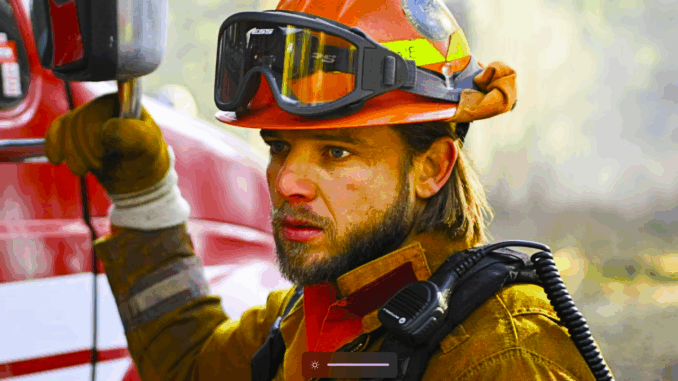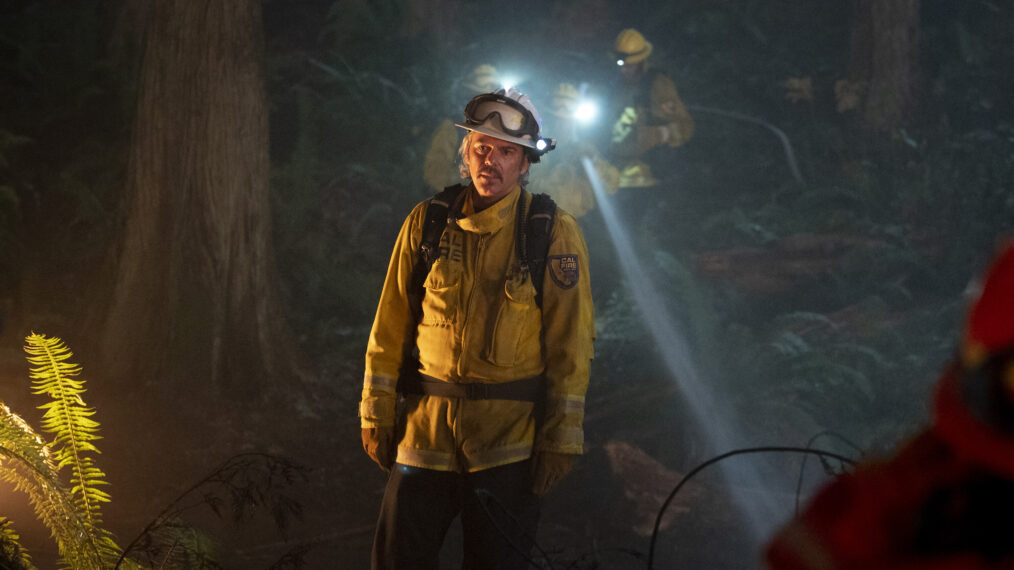
Few scenes in Fire Country capture the raw intensity of firefighting and the human cost of sacrifice as vividly as the moment when Bode Donovan throws himself into a raging inferno to save a trapped civilian. The sequence, seared into the memory of viewers, is more than just an action highlight—it is a defining moment that crystallizes the themes of redemption, brotherhood, and the heavy price of second chances.
A Scene of Relentless Tension
The build-up to the rescue unfolds with cinematic precision. The flames are not just background chaos; they are living, breathing adversaries. Smoke swallows the frame, sirens blur into shouts, and the frantic pulse of the score mirrors the viewers’ racing hearts. In the middle of it all, Bode charges into the blaze despite orders to hold back. His decision is reckless, dangerous, and yet entirely in character for a man desperate to prove that his past mistakes do not define him.
The camera lingers on every beat of his struggle—hauling beams aside, coughing through the smoke, and finally carrying the victim on his back through a collapsing wall of fire. The scene doesn’t glamorize heroics; instead, it emphasizes how close he comes to never making it out alive.
The Redemption Arc in Action
This rescue is not just about saving a life. For Bode, it’s a visceral manifestation of his ongoing quest for redemption. As an inmate firefighter, every action he takes is under scrutiny. His willingness to gamble his own survival underscores the depth of his need to atone. The moment echoes throughout the season as a symbol of why viewers root for him—not because he is perfect, but because he is relentlessly human.
Audience and Critical Reactions

When the episode aired, fans flooded social media with praise for Max Thieriot’s portrayal of Bode. Many pointed out the authenticity of the firefighting sequences, crediting the show’s creators for capturing both the adrenaline and the danger without drifting into sensationalism. Critics, meanwhile, noted that this scene elevated Fire Country beyond the conventions of a procedural drama. It wasn’t just another rescue—it was storytelling that fused character development with spectacle.
Why It Matters
At its heart, the scene works because it represents what Fire Country is all about. The flames are not just physical obstacles but metaphors for Bode’s inner battles. By saving another person in a situation where survival seemed impossible, he takes one more step toward saving himself. The rescue resonates because it shows that heroism is messy, costly, and never guaranteed.
